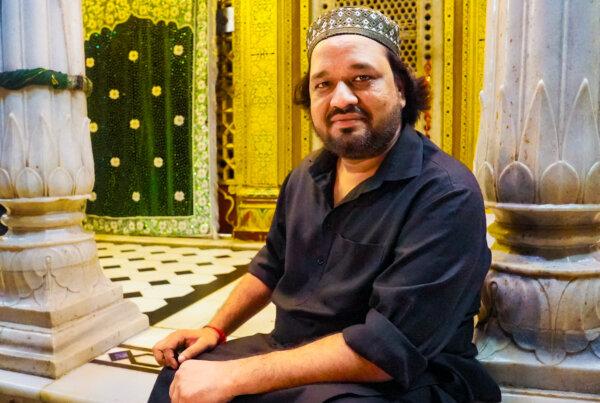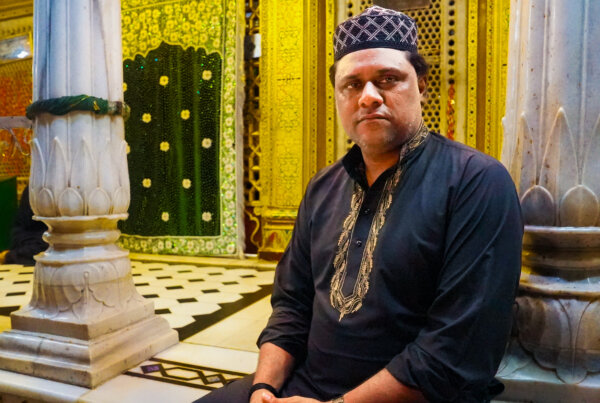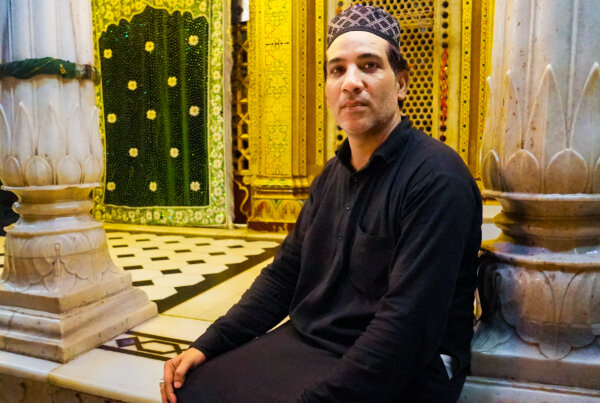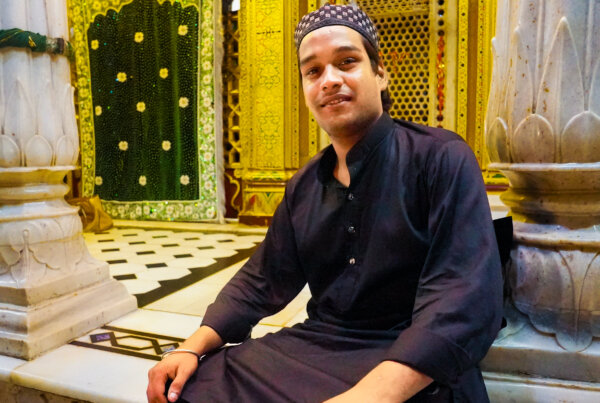
Qawwali, a profound form of Sufi Islamic devotional singing originating in the Indian subcontinent, carries with it a rich history and cultural influences. Rooted in spiritual expression and musical excellence, Qawwali has transcended its origin at Sufi shrines or Dargahs to gain mainstream popularity and an international audience in the late 20th century. Usually performed in Persian, Hindi, Urdu, Punjabi, and Bengali, Qawwali is closely linked to the Hindustani classical tradition of the Asian subcontinent and Persian influence through Mughals. The term “Qawwali” finds its origins in the Arabic word “Qaul,” meaning the words of the Prophet and it is believed that listening to Qawwali imbibes spiritual connection to the God.
Sultan Niyaz and Usman Niyaz, popularly known as Niyazi brothers have been performing Qawwali in Delhi’s Hazrat Nizamuddin Aulia Dargah for the past 37 years. Originally from Hapur city in Uttar Pradesh, they now reside and perform together with their cousins in Urdu and Hindi languages at several places in Delhi, most prominently being the Delhi’s Dargah. The Hazrat Nizamuddin Dargah, often referred to as the ‘nerve center of Sufi culture in India’, is a mausoleum of the 13th-century Sufi Saint Khwaja Nizamuddin Auliya that attracts thousands of devotees from various religions every week. It is cherished for its daily evening qawwali sessions, particularly on Thursdays when the crowd assembles to witness the powerful tunes dedicated to the saint, who was a prominent figure in the Chishti order of Sufism.
Remarkably, the Niyazi Brothers and their fellow musicians have embarked on this musical voyage without any formal training. Due to their upbringing in a conventional qawwali-oriented household, they were exposed to the artform since their childhood. These qawwals are an ensemble of seven or eight men, with two lead singers, some percussionists on the dhol and tabla, and a few other singers who sing in the chorus.
Their melodic talents have been passed down through generations, with them being the 23rd iteration of Qawwali performers in their lineage. They perform Sufi melodies, Ghazals, and Qawwalis often inspired by the works of Amir Khusrow, as well as their own creative renditions.
The melodies resonating within the Dargah, performed by the Niyazi brothers, are a manifestation of Amir Khusrow’s poetic compositions in Ishq-e-Haqeeqi. Basically, in the realm of Urdu Qawwali’s lyrical art, there are two kinds of ishq: Ishq-e-Haqeeqi and Ishq-e-Majazi. Ishq-e-Haqeeqi encapsulates a profound love or devotion for Allah or rooh(soul). The term ‘Ishq-e-Majazi’ is used to refer to the love between two mortal beings, as opposed to Ishq-e-Haqeeqi, which is the love between a human being and the divine.
Qawwali has a rich history and is known for its emotionally charged melodies and powerful lyrics that convey themes of love, devotion, and spiritual yearning. Many young people today are on a quest for deeper meaning and spirituality beyond traditional religious practices. The intensity of qawwali performances by Niyazi brothers and other excellent virtuosos infuse qawwali with emotive depths and offers a path that focuses on inner experiences, self-discovery, and connection with the divine, which can resonate with those seeking a more personal and profound connection to their faith.





